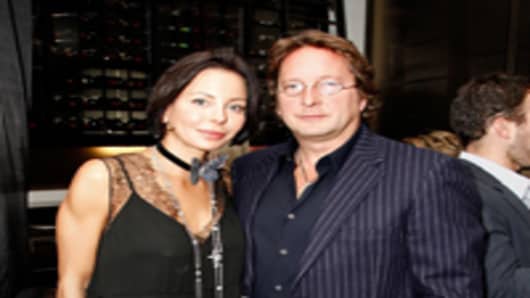But even as his satellite orbits overhead, Mr. Falcone seems to be losing altitude. Federal authorities are examining whether he used his giant hedge fund as a personal piggy bank to pay a personal income tax bill. They are also investigating whether his money management firm, Harbinger Capital Partners, gave preferential treatment to certain clients.
Alarmed by the investigations and uneasy about Mr. Falcone’s 4G ambitions, investors like Goldman Sachs, the Blackstone Group and New York State’s public pension fund have asked to withdraw money from Harbinger.
Meanwhile, Mr. Falcone has been selling investments. He has unloaded stakes in Citigroup and The New York Times Company and a $650 million investment in Inmarsat, a British satellite company.
All of this has led to speculation in the hedge fund community that Mr. Falcone and his firm are confronting a cash squeeze. If more investors withdraw money, the whispers go, Mr. Falcone could be in trouble.
Nonsense, said Mr. Falcone in an interview in his office. “The last thing I’m thinking about in the morning is whether I have a cash-flow problem,” he says.
Such assurances aside, the developments represent quite a turnabout for Mr. Falcone, who burst onto the scene three years ago after making a winning bet against the subprime mortgage market. He and his wife, Lisa Maria, promptly stormed New York society, ruffling some well-coiffed feathers along the way.
Throwing money around as only newly minted billionaires can, the Falcones bought a mountaintop villa in St. Barts and the Penthouse mansion of Bob Guccione on the Upper East Side. A leggy brunette who grew up in Spanish Harlem, Ms. Falcone turned heads with a Prada sensibility and her pet pig, Wilbur.
Amid the galas and charity auctions, the couple also stirred controversy by disregarding the unwritten rules of moneyed New York. Like the time Ms. Falcone, in an iridescent minidress, interrupted the speaker at a 2009 gala for New York’s new High Line park and pledged to match a $10 million grant by Barry Diller and his wife, Diane Von Furstenberg.
“When she did the thing at the High Line, it put some noses out of joint,” said David Patrick Columbia, the editor of newyorksocialdiary.com.
Slouched over a chair in a conference room at Harbinger’s spartan Midtown offices this week, Mr. Falcone, 48, hardly looked worried. He wore a rumpled white shirt, opened two buttons down. Beaded bracelets, made by his two daughters, peaked out from his French cuffs.
“I’m not getting out of the hedge fund business. The business has been very good to me,” Mr. Falcone insisted. “We’ve gone through rough patches before and we’ll go through them again.”
At the same time, however, Mr. Falcone spelled out a new, emerging vision for himself and his firm: He wants to build a public company that will protect him from the whims of flighty investors.
Through the Harbinger Group, a publicly traded company that once processed fish oils, Mr. Falcone plans to acquire numerous companies as long-term investments. He intends to transfer into this company his hedge fund’s majority stake in Spectrum Brands, which makes the George Foreman grill.
“I do have a vision for this thing, and it will be a big part of my future,” Mr. Falcone said.
And yet Harbinger is shrinking — fast. At its apex in mid-2008, the firm controlled nearly $26 billion. Today, after a roller-coaster ride in the markets and withdrawals by investors, that figure has dwindled to around $8 billion. Its flagship fund is off 15 percent this year, but was up 45 percent in 2009 and down 27 percent in 2008.
Mr. Falcone’s relationship with some of his investors began to sour in late 2008 when he told nervous investors that he would limit withdrawals to 70 percent of the request in cash and put other, hard-to-sell investments into a separate account that he has been slowly selling and giving the proceeds to investors. Today, that account is worth about $1 billion.
But while Mr. Falcone’s investors had their money locked up in some of his funds, he found a way to clear that hurdle and free up cash to pay a personal income tax bill.
Investors in his Special Situations Fund have not had access to their money since Lehman Brothers went bankrupt in the fall of 2008. Lehman was the fund’s broker and held its assets. The fund is being wound down and investors are receiving proceeds from the sales of securities.
But a little more than a year ago, Mr. Falcone took a $113 million personal loan from the fund, a move that was vetted by his lawyers, he said.
Mr. Falcone said a big chunk of his personal wealth is tied up in his own funds. “It’s not like I have $113 million in my checking account,” he said, chuckling.
Still, Mr. Falcone said he might think twice about taking such a loan given the unwelcome attention the transaction has received.


